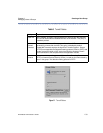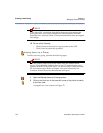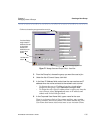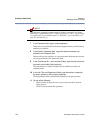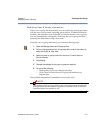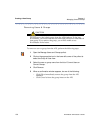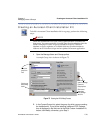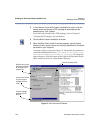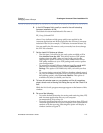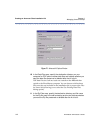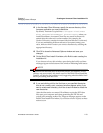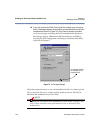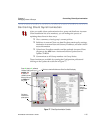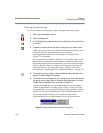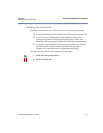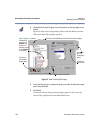
RiverMaster Administrator’s Guide 141
Chapter 6
Creating an Aurorean Client Installation Kit
Managing Users & Groups
6
In the Kit Filename field, specify a name for the self-extracting
Aurorean installation kit file.
The default Aurorean installation kit file name is
RP_Group_Release#.EXE
where Group indicates which group policies are applied to the
Aurorean application and Release# specifies the version of Aurorean
included in the kit (for example, V3 indicates Aurorean Release 3.0).
You can modify the file name to suit your needs, but do not change
the .EXE file extension.
7
Set the Install Kit Options as follows:
– The first time you build a kit, the only option available will be
Use datafiles from the APS. This choice retrieves POP phone
numbers from the APS. After you have built your first kit,
choosing this option is useful if you have added more ISPs or
POP phone numbers to your POP package and want to update
your configuration.
– To generate a revised TollSaver database from files on the APS
(the slowest kit-building option), select Update the POP
Package. This option is available only after you build your first
kit.
– To use an existing customized TollSaver database already stored
on your RiverMaster computer from a previous build (the fastest
kit-building option), select Use local datafiles. This option is
available only after you build your first kit.
8
To leave this window open on your desktop until the kit completes,
place a check next to Leaving this Dialog box up until the Client Kit is
built.
While the kit is built, progress messages appear at the bottom of this
window.
9
Do one of the following:
– To use the default directories for storing and retrieving data, ZIP,
and Aurorean application files on your computer
(recommended), skip to Step 14.
– To modify the directories used to store and retrieve data, ZIP, and
Aurorean application files on your computer, click Advanced and
continue with the next step. Selecting this option will display a
window similar to Figure 75.



